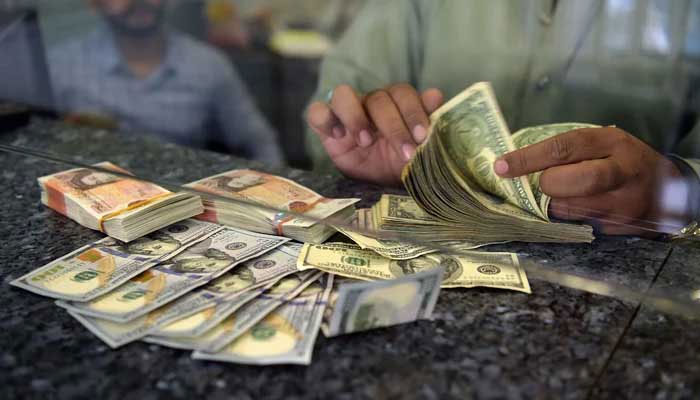On our way to stability
Government taking all possible measures to correct the twin deficits, including policy and administrative measures
There is no doubt that Pakistan has been going through an unprecedented tough economic situation. It is very well known that the present government inherited serious economic challenges and took a hard decision to revert to the path of economic stability even at a heavy political cost -- and that too in the year of general elections. This decision of the government was in the supreme interest of the country.
Unfortunately, a recent news report paints an inaccurate picture, giving the impression that reforms in the energy sector and the tax system have been stalled. This is far from the reality. In fact, this government, soon after assuming office, took major corrective decisions to revive the stalled IMF Extended Fund Facility (EFF) program. This led to the successful completion of the 7th and 8th reviews.
In the energy sector specifically, significant structural reforms have been accomplished during the last 3-4 months. All untargeted subsidies in the power and gas sector have been withdrawn with the aim of recovering the full cost of generation through tariff revision. The government has moved towards targeted subsidies so that the poor and vulnerable are cushioned from the effects of inflation and rising prices while the burden falls on the affluent class. In addition, the government has increased the stipend for the poorest of the poor by 25 per cent under the Kafalat Programme under BISP with effect from January 1, 2023 -- increasing the BISP budget by Rs40 billion to Rs400 billion.
The government is also taking all possible measures to correct the twin deficits, including policy and administrative measures. As a result, the Current Account Deficit (CAD) narrowed to only $3.4 billion during the first nine months of the current fiscal year to March 31, 2023, as against $13.0 billion in the corresponding period last year. It is expected to close the CAD around $4.5 billion in the current fiscal year ending June 30, 2023. This will help improve the country's forex reserves and reduce reliance on external borrowings.
Secondly, the government has gradually withdrawn all tax exemptions as agreed with the IMF. The government is mindful of the fact that these exemptions not only create distortions in the tax system but also lead to a shortfall in the revenue targets. Third, net federal revenues have witnessed a growth of 32 per cent during the first eight months to February 28, 2023, of the current fiscal year against the same period of the last year. The current non-markup expenditures have been reduced by 19 per cent, mainly due to the withdrawal of subsidies and grants. The SBP has been independently taking its decisions for monetary policy tightening in order to curb inflation in the country.
As a result of the aforesaid reforms and efforts, Pakistan has already complied with all the prior actions for the 9th review with the IMF. Once again, these reforms include measures to broaden the low tax base by ending tax exemptions, raising the electricity and gas prices to pass on the burden to the consumers and minimising the subsidy component while protecting low-income groups. It is expected that the Staff Level Agreement (SLA) will be signed soon with the IMF which should be followed by the approval of the 9th review by the IMF Board.
-
 Prince Harry And Meghan Unlikely To Meet Royals In Jordan
Prince Harry And Meghan Unlikely To Meet Royals In Jordan -
 Hero Fiennes Tiffin Shares Life-changing Advice He Received From Henry Cavill
Hero Fiennes Tiffin Shares Life-changing Advice He Received From Henry Cavill -
 Savannah Guthrie's Fans Receive Disappointing News
Savannah Guthrie's Fans Receive Disappointing News -
 Prince William Steps Out For First Solo Outing After Andrew's Arrest
Prince William Steps Out For First Solo Outing After Andrew's Arrest -
 Jake Paul Chooses Silence As Van Damme Once Again Challenges Him To Fight
Jake Paul Chooses Silence As Van Damme Once Again Challenges Him To Fight -
 Google Disrupts Chinese-linked Hacking Groups Behind Global Cyber Attacks
Google Disrupts Chinese-linked Hacking Groups Behind Global Cyber Attacks -
 Four People Killed In Stabbing Rampage At Washington Home
Four People Killed In Stabbing Rampage At Washington Home -
 Meghan Pushes Prince Harry Into Territory That’s Dangerous To His Brand: ‘She Isn’t Hearing A Word Of It’
Meghan Pushes Prince Harry Into Territory That’s Dangerous To His Brand: ‘She Isn’t Hearing A Word Of It’ -
 Christina Applegate Reflects On Lasting Impact Of Being Molested In Childhood
Christina Applegate Reflects On Lasting Impact Of Being Molested In Childhood -
 Martin Short Makes Big Decision Following Tragic Death Of Daughter
Martin Short Makes Big Decision Following Tragic Death Of Daughter -
 Antarctica’s Mysterious ‘gravity Hole’: What’s Behind The Evolution Of Earth’s Deep Interior?
Antarctica’s Mysterious ‘gravity Hole’: What’s Behind The Evolution Of Earth’s Deep Interior? -
 Hilary Duff Addresses Ashley Tisdale's 'toxic Mom Group' Claims And Matthew Koma's Firey Response
Hilary Duff Addresses Ashley Tisdale's 'toxic Mom Group' Claims And Matthew Koma's Firey Response -
 Jack Hughes's Proximity To Trump Angers Tate McRae Fans
Jack Hughes's Proximity To Trump Angers Tate McRae Fans -
 Neve Campbell Opens Up About Her 'difficult Decision' To Not Sign 'Scream 6'
Neve Campbell Opens Up About Her 'difficult Decision' To Not Sign 'Scream 6' -
 Nobel-winning Scientist Resigns From Columbia University After Epstein Links Revealed
Nobel-winning Scientist Resigns From Columbia University After Epstein Links Revealed -
 Prince William Remarks At BAFTAs 'indicative' Of King Charles Physical, Mental Health Too
Prince William Remarks At BAFTAs 'indicative' Of King Charles Physical, Mental Health Too




